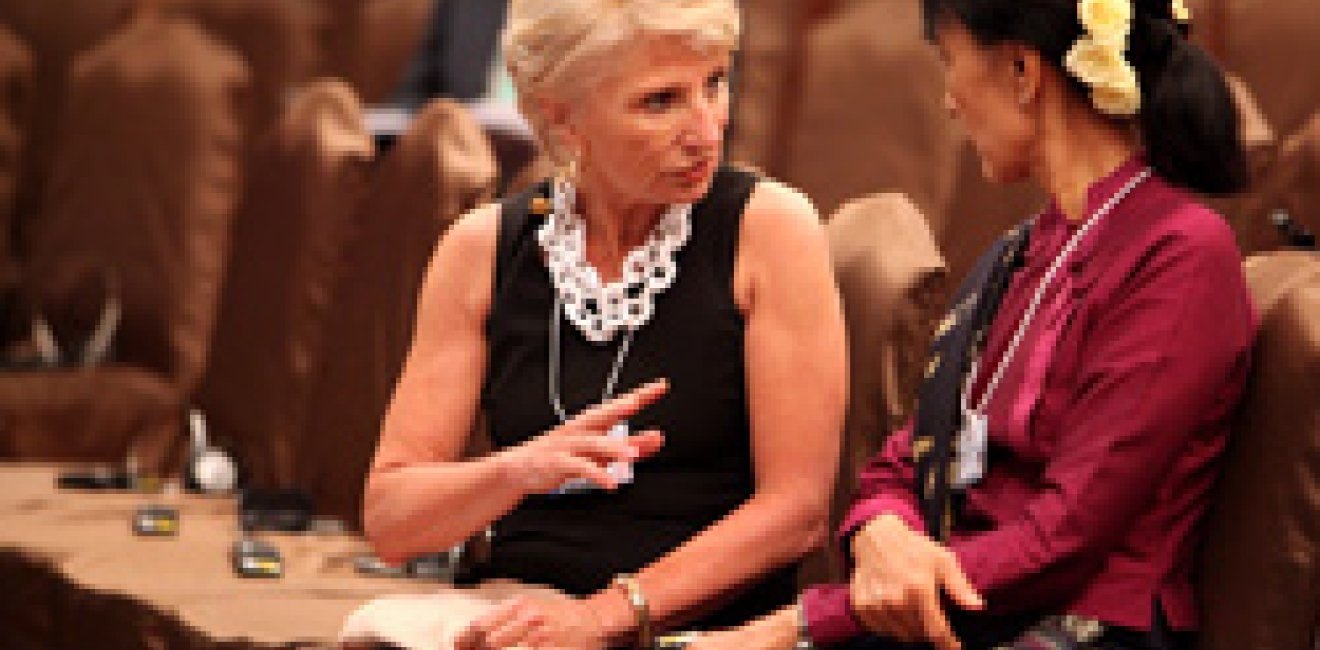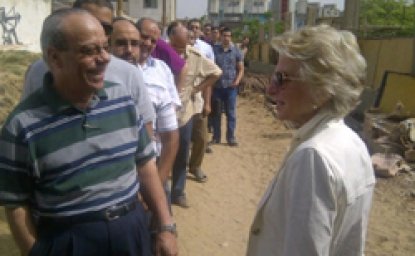Eighteen months into Egypt’s experiment in democracy, is it game on or game over?
On the eve of two key rulings by the country’s highest court — and just three days before the second round of presidential elections — the military reimposed martial law. The next day, the Mubarak-friendly court decided that a man the former dictator considered his “third son” could run for president and also ruled that the Islamist-led parliament must immediately be dissolved. Many are calling it a bloodless coup.
Observing the presidential primary just weeks ago, I could not have imagined this outcome. Nor would it have occurred to me that Myanmar, where I traveled next, might be far ahead of Egypt in its democratic transition.
Two days after Egyptian President Hosni Mubarak abruptly left office in February 2011, Burmese citizens created a Facebook page calling for the end of the military dictatorship in their own country. “Just Do It Against the Military,” they named the page.
The implication was clear: If the Egyptian people can topple a repressive regime, why can’t we?
A few weeks later, opposition leader Aung San Suu Kyi underscored the impact of the Arab Awakening — specifically the Tahrir Square protests — on the mind-set of the Burmese people. “Everyone is waiting around to see with great interest what transpires,” she said, “because people were impressed with what happened, particularly in Egypt.”
While the Burmese may have been impressed with events in Tahrir Square last year, Egypt should be looking to Myanmar’s example now. Egyptians are due to head to the polls this weekend but democratic change seems increasingly elusive. Myanmar, meanwhile, has moved further and faster toward real political reform.
In the first round of presidential voting two weeks ago, I was one of two U.S. election observers in Egypt not affiliated with the Carter Center. It was thrilling to see people standing in lines despite the heat, feeling that they had a stake in their future.
But those surprising winners — a former Mubarak prime minister and a Muslim Brotherhood candidate — did not reflect the kind of democratic change that Egyptian protesters fought and died for. Whichever way the election comes out, large segments of the population will most likely be unhappy.
In Myanmar, however, the recent elections were shocking for precisely the opposite reason: In April parliamentary by-elections, Daw (“Auntie”) Suu’s National League for Democracy won nearly every seat. This demonstrated strong support, even among government employees and soldiers, for the NLD — which advocates a nonviolent approach toward multiparty democracy in Myanmar.
Sen. Susan Collins (R-Maine) and I recently met Suu in Bangkok, during her first foreign trip since house arrest. Her warning that investors retain “healthy skepticism” in dealing with Myanmar reportedly caused a rift with Burmese President U Thein Sein. But hopefully both leaders will step back.
Though Thein Sein took office in March 2011 after deeply flawed elections, he is largely responsible for pushing to open up his country. Not only did he encourage the parliamentary elections, he also freed a number of political prisoners and has taken steps to liberalize the state-controlled economy.
Washington, in response to these reforms, lifted a travel ban on some of Myanmar’s senior leaders, eased sanctions on U.S. investments there and appointed the first U.S. ambassador to the country since 1990.
Women have also fared much better in Myanmar than in Egypt over the past year. Women representatives in the Egyptian parliament dropped from 64 seats to just five after the “revolution.” But all 13 women in Myanmar running on the NLD ticket won.
There is also no Egyptian equivalent to Aung San Suu Kyi, a Nobel Peace Prize winner who speaks with tremendous moral authority that reflects steadfast courage during two decades of house arrest.
Myanmar’s greater headway toward democracy is apparent even in the leadership’s choice of dress. Egyptian government officials still wear their uniforms — a symbol of fear and repression to the people — while Myanmar leaders have taken off their military gear. For example, when we met Thein Sein and several Cabinet members, all former generals, they wore traditional attire.
Perhaps most remarkable about Myanmar is that democracy has progressed despite the lack of connectivity. Myanmar has fewer phones per capita than any other country in the world, as well as extremely slow and scarce Internet connections.
This fact suggests that Facebook and other forms of social media, however attractive to citizens in both Egypt and Myanmar, can’t produce political reform on their own. As the New York Times op-ed columnist Tom Friedman counseled a group of young people, “Your lives may be digital, but politics is still analog … so get off Facebook and into someone’s face!”
Aung San Suu Kyi says she is too busy to spend time on Facebook. But in the wake of an encouraging election, she certainly continues to get in her government’s face.
Perhaps there’s a lesson there for Egypt’s revolutionaries as well.
This article first appeared on Politico.






